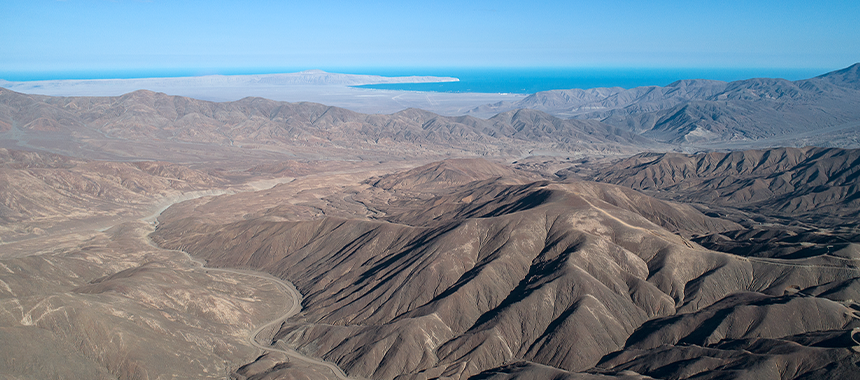Mining Exploration in Chile: Greenfield finds its footing
RELATED PUBLICATION
ARTICLES FROM THIS PUBLICATION
Mining Exploration in Chile

Image courtesy of Marimaca Copper
The brownfield expansion sweeping Chile over the next decade can be attributed to the investment and expansion of the large multinationals, for whom surging copper prices have provided more operating capital and, in turn, augmented investor confidence in producing mines to allow for such ambitious projects. Meanwhile, juniors dependent on financial markets face headwinds. High exploration costs, scarce viable deposits, and long permitting times have stalled Chile’s greenfield pipeline and deterred Western investors.
Still, there is hope - Chile led global copper exploration in 2024, attracting 27.4% of global investment. Experts expect the US$637.4 million to grow as investor confidence returns in early 2025.
Fitzroy Minerals owns three exploration projects in Chile, with plans to drill all of them in 2025. Merlin Marr-Johnson, CEO, commented: “I have worked across Latin America, and I can say that Chile is hands-down the most logical place to invest in mining in South America, if not the world. Argentina is moving in the right direction, but there is still not a mining culture, and there are similar problems with community relations there as in Ecuador.”
Fitzroy purchased the Buen Retiro Copper project last year and raised C$3 million for 8 km of drilling.
Other junior companies, such as Altiplano Metals, are relying on other sources of income to help when markets look less favorably on exploration. Altiplano owns and operates the El Peñón Mill, which has generated sales from concentrates of gold, copper, and an iron byproduct. “Having an income source makes us unique, as most juniors rely on equity markets to survive. This has been the model of junior mining since its inception, and recently, this has come under scrutiny because if you cannot raise money, the future of the company can be in doubt,” observed Alistair McIntyre, Altiplano Metals’ CEO, continuing: “This source of income has helped us invest in projects, grow our company, and manage our business, paying wages, bills, and the fees associated with the capital-intensive industry that mining is.”
Altiplano is also drilling Santa Beatriz and acquired two more projects in the past year. “With new mining concession laws in Chile, companies are looking harder at whether they want to keep a project or not. With project information increasingly in the public realm, it helps the right team explore them and helps the entire value chain become more involved in projects,” added McIntyre.
These updates to Law 21.420, passed at the end of Sebastián Piñera’s government, aim to raise mining revenue and prevent land hoarding. Whilst the law may result in larger companies offering up more deposits for purchase by juniors, it could price out the smaller companies as it raises their concession fees by 300-400%. “Rather than supporting the growth of the industry, this law endangers the survival of small-scale mining, a sector that not only creates jobs but also plays a fundamental role in discovering new mineral deposits,” argued Manuel Viera Flores, president of the Chilean Mining Chamber.
One project that has already felt the impact of the law changes is the Avispa project owned by Montero Mining. Since purchasing the land in 2020, the company has reduced the land package from 500 to 220 km2, driven by the cost of holding licenses in Chile. “Many of the easily accessible deposits have already been developed, meaning exploration for more elusive deposits is both costly and time-consuming. With licensing fees now significantly higher, smaller companies struggle to sustain large land holdings. Previous exploration strategies of acquiring larger land packages initially and reducing them over time based on exploration results are not as easy anymore,” explained Montero Mining CEO Anthony Harwood.
However, he sees the alterations more as an opportunity than a threat moving forward. “Companies of all sizes have been forced to relinquish property due to increased holding costs. This has prompted major mining firms to reassess their portfolios, leading to the sale of lower-priority assets—an opportunity for junior miners looking to acquire new projects,” he elaborated.
A great advantage of mining in Chile is the public trust it enjoys. The Brújula Minera Study Center found in a 2024 survey that 83% of respondents believed the Chilean mining industry had a positive impact on the country. “Mining companies care about communities, the environment, and technologies that will benefit society as a whole. I think what has been improved on most, however, is visibility. The benefits of mining reach every walk of life, with hospitals, schools, and roads built because of mining. Mining is an engine of development for Chile, and we have to make the most of it,” stated David Alaluf, general manager Chile of technology company Endress+Hauser.
Los Andes Copper has focused on community relations through 2024 to advance its 183,000 t/y Vizcachitas project in Putaendo toward development. It launched extensive initiatives in 2024, including biodiversity conservation and compensation projects, hoping that when ready to start permitting, the Vizcachictas project will have widespread community support. “In many other jurisdictions, regional governments actively compete to attract investment, whereas Chile often sees local authorities opposing projects regardless of political orientation. The key to resolving this challenge is ensuring that economic benefits from mining projects reach regional and local governments more effectively and promptly. Looking at global examples, Brazil provides a compelling model where states and municipalities actively compete for investments,” commented Santiago Montt, CEO of Los Andes Copper.
In the modern world of mining, there are many methods available for juniors and exploration companies to ease the path towards production. Companies exploring in Chile are looking to fully exploit all of these avenues to capitalize on record metal prices and provide the next generation of mining deposits for Chile to continue growing and consolidate its global leadership.











